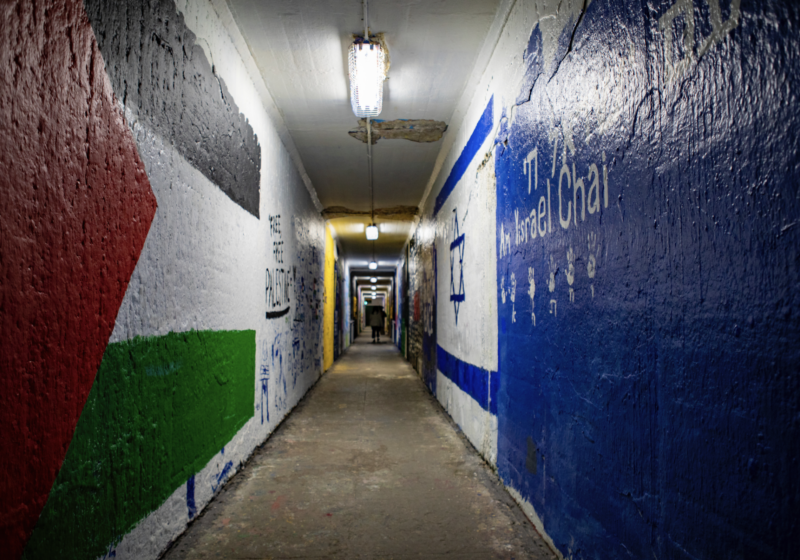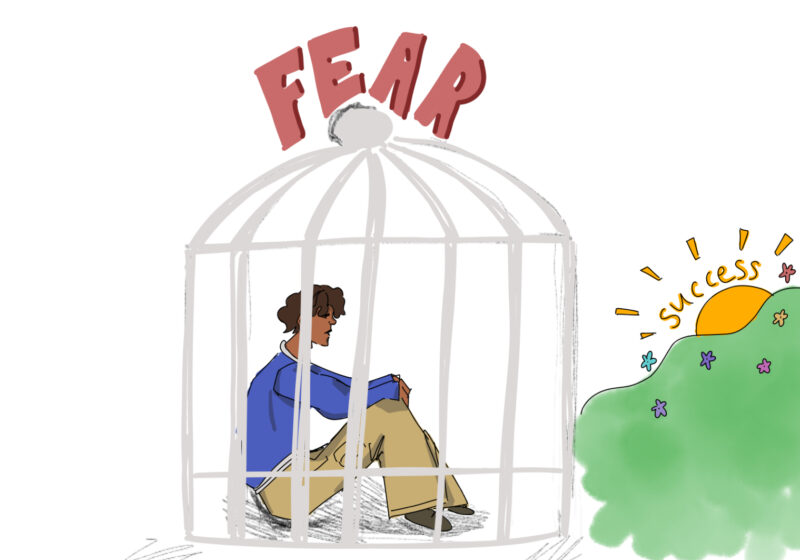Protesters filled the streets of Australia, England, France and Germany. An estimated 150 rallies were held in the U.S., stretching from L.A. to Chicago to New York. Between 100,000 and 500,000 protesters converged on the streets of New York City, taking up 20 blocks down First Avenue.
Heading to New YorkLast Friday night, over 20 UR students headed down to New York City to protest the war on Iraq. Most paid $25 to travel down on one of the six buses provided by Metro Justice, a Rochester-based protest organization. Other students, some of whom were placed on the 100-person waiting list for the Metro Justice buses, piled into cars and got there on their own.Most of the students who went to this protest are veterans, having gone to previous anti-war protests. “I heard about it in D.C. when I was there a month ago [for another protest],” senior Brian McCain said.
The students came from diverse backgrounds, and headed to the protest for a variety of reasons. “Due to the unstable conditions in the Middle East, a war would destabilize the region and result in mass violence,” freshman Nat Powell said. “It doesn’t fit into the ‘just war’ framework. It’s almost entirely for economic and political reasons.”
Sophomore Dan Apfel also believes that the reasons for going to war are based in economics. “I think war is unnecessary because it’s definitely based on oil,” he said. On the other hand, junior and Student for Social Justice member Colin Theis believes that the war needs to be averted for moral reasons. According to Theis, “Violence should only be used as a very, very last resort.”
Sophomore Sona Rai was one of the UR students who decided to get in a car with her friends and drive down to New York. “I went because it’s a big moralizing thing for me. I think it’s a big effect of September 11,” she said. “We didn’t capture our perpetrator in Afghanistan, so we want to capture someone,” Rai said.
As a coordinator of Students for Social Justice and Rochester Campus Action Network, sophomore Matt Clark went to rally hoping to have a local impact. “My hopes are to get more people involved,” Clark said.
“The more people you have, the more power you have.” Prior to the Washington protest in January, Metro Justice had never contracted more than two buses for a protest event. They took eight buses to Washington, but due to limited funds could only supply six for the New York rally, despite increased interest.
The group from Rochester stuck close throughout the rally, according to students who attended. “Even before we got on the bus, there was a big feeling of community — like we’re all in this together,” sophomore Domingo Moronta said.
A mass movementAs the buses approached the scene of the rally, freshman Mike Rotheberg noticed a change in the air. “When we pulled into New York City, people started getting riled up and ready to go,” he said.Students described the scene on the streets of New York as both overwhelming and empowering. “Before we got to the actual rally point, there were so many people that we just took over the streets completely,” Powell said.
Many of the participants commented on the level of energy at the rally. “The atmosphere was really great,” Clark said.
Apfel agreed. “It felt much bigger, like a mass movement,” he said.Students also noted that not everything about the mood of the rally was positive. “We were close to everyone — there was more tension in the air because we’re significantly closer to war and the cops were everywhere,” Apfel said.
The rally was not granted a march permit by the city, so police were on hand to control the crowds.
Police efforts included blocking off streets and restricting protestors to sidewalks and designated areas of the street. Many felt that their efforts were excessive. “New York police aren’t as experienced as other police and they’re taught to be a little rough,” Clark said.
Apfel described a situation where police lost control of the crowd. “Protestors had taken the street over — people were everywhere. The cops got on their horses and lined up. They started charging the protestors,” he said.
Powell believed that many of the problems could be blamed on the fact that the rally was not granted a permit. “It was pretty much the city’s fault that they had all the problems,” he said.
Some of the UR students present believed the police were doing their best with the crowd. “It wasn’t their fault,” McCain said. “Everyone wanted to be peaceful.”
For the most part, protestors felt encouraged by the reactions of city residents. “We got a lot of really good support from people in New York,” Powell said.
The aftermathThough the entire trip took place within a 24-hour period, students hope that their efforts will have a much longer lasting effect. “I think this showed the world that people really do care,” Apfel said. “I don’t know if it will change the position of the administration, but it might make a difference for the future.”
Though Bush made a public statement saying that he remained unswayed after the protests, students are hopeful that their rally cries did not fall on deaf ears. “I wanted Bush to know that this war isn’t supported,” Moronta said. “The country isn’t just apathetic like I thought.”McCain pointed out that it is important for the world to see that some Americans are against the war. “The more bodies you have, the bigger the impact,” he said.
Regardless of the outcome, it was hard to ignore the sheer numbers involved in the anti-war effort. “If you get 11 and a half million people out there, eventually we can change the world and make it a better place,” Apfel said.





